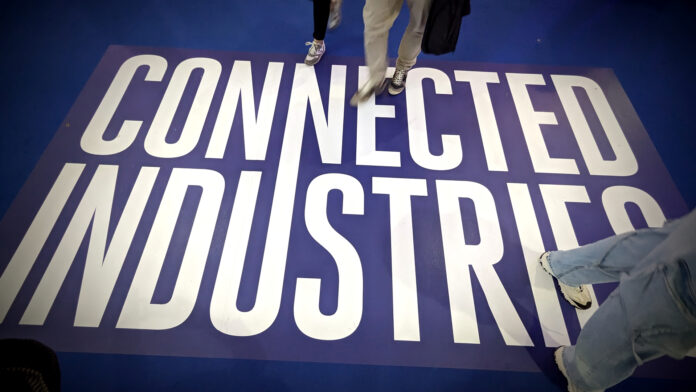MWC 2024: Bleary-eyed and dead-on-our-feet, after 72 hours in Barcelona and 24 hours in briefings…
MWC is not just a telco show, anymore; it is not even a telecoms show, really. Which reflects well on the event itself, as well as the industry that puts it together. Yes, there is lots about open cellular networks and the kinds of mobile gadgetry and services that will be attached to them – handsets, cars, helicopters. And the tale about how cellular might also play in sundry enterprise fields is robust; the narrative around connected buildings, cities, hospitals, venues, warehouses, factories, and plants is well told on the operator stands in hall 3, as well as in keynotes and panel sessions.
And there is no question, of course, that many of the interlopers here – the consultancy firms, cloud hyperscalers, system integrators, setting out their own monster footprints in halls 3 and 4, and otherwise stomping about noisily in meeting rooms and champagne receptions – are here mostly to sell digital change to the telecoms industry. But MWC 2024 is also an expanding ecosystem show, greatly spurred by the rabid promise of AI, reflective of an industry that is properly looking outwards at last – at its companion role in the transformation of other industries.
Because all of those cloud functions and programming interfaces, and the internal change programmes they engender, are not really about making mobile operators more efficient, even if efficiency is what makes boardroom eyes glow; they are about unlocking new capabilities in 5G networks, to make them relevant to new applications and new customers. They are about enterprises, mostly. And if MWC is not an enterprise show, by any stretch, then the 2024 version certainly feels like an event with a broader focus, drawing a wider crowd. It is a really good show.
The buzzy interest in telecoms-related tech is notable in the new brands and stands in Barcelona. A number of exhibitors have remarked upon the weird neon and strange wizardry amid the familiar signage on the show floor; much of it draws on generative AI, of course. But there are a number of operational technology (OT) outfits in tow, as well, six weeks early for Hannover Messe. And meeting after meeting, the word is that even enterprises are out in force. Twelve-hundred is the number quoted – which doesn’t sound much given there are 90,000 delegates through the door.
But the business in back-rooms is busy, busy, busy – says everyone. Not just with enterprises, but between various and all of the ecosystem parts: between airtime vendors, network vendors, cloud vendors, compute vendors, chip makers, module makers, software developers, application developers, consultants, and integrators. (With apologies to anyone we left out.) At the same time, MWC 2024 is not a telco show (to us, investigating enterprises, requesting briefings), because the operators hardly turned up.
That is, except for Verizon Business (at length, and in detail), BT (interestedly, but briefly), and Vodafone (deferred to next week). Meanwhile every other part of the ecosystem has wanted to chat about private networks, edge computing, and industrial IoT for enterprises in Industry 4.0 – with smatterings of generative AI, mostly just because they have to. Coverage will follow from those briefings, and more editorialising (about Barcelona basket-cases, blood baths, and b!tching), as well; the point here – in the press room, late on Wednesday – is that MWC 2024 rocks, and that most of the tech ecosystem is working to make 5G an essential part of digital transformation.
They are also variously working – where the business makes sense – to make national mobile networks a part of the deal. Even if there is a good amount of navel-gazing, or denial or distractedness or indecision, by operators, still.

